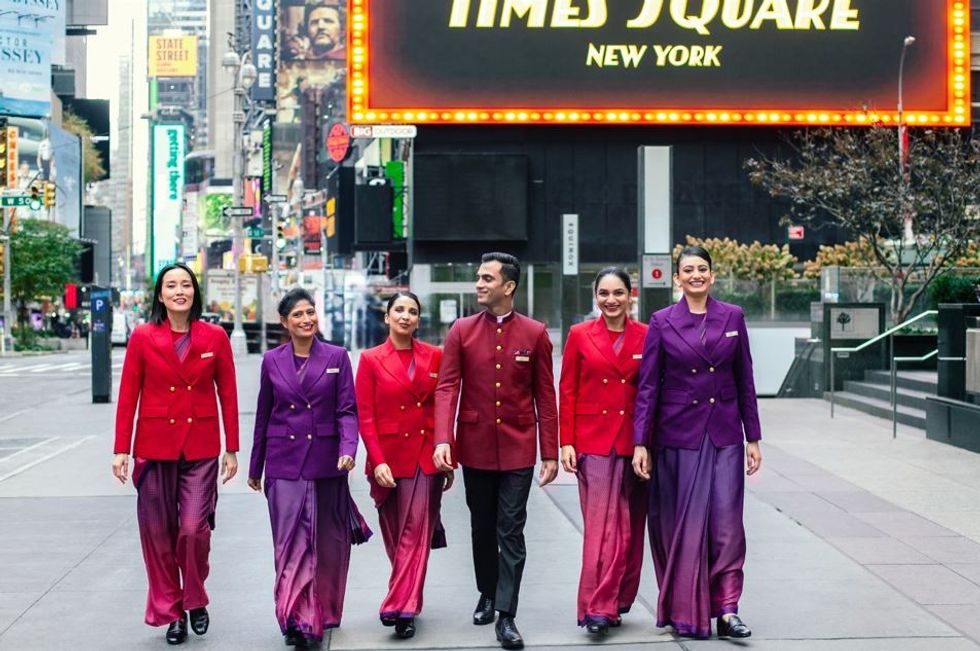BRITISH inflation fell by more than expected in June and was at its slowest in more than a year at 7.9 per cent, according to official data that will ease some of the pressure on the Bank of England to keep on raising interest rates sharply.
Sterling weakened against the US dollar and the euro as the Office for National Statistics said the consumer price inflation growth rate was its lowest since March 2022 but stayed above the pace of price growth in other big, rich economies.
Economists polled by Reuters had forecast the CPI rate in the 12 months to June would drop to 8.2 per cent from May's 8.7 per cent, moving further away from October's 41-year high of 11.1 per cent but still far above the BoE's two per cent target.
The BoE said in May it expected June inflation would fall to 7.9 per cent.
"Overall, the UK will probably still have higher rates of inflation than elsewhere for a while yet, but at least the UK is now following the global trend," Paul Dales, chief UK economist at Capital Economics, said.
Investors reeled in bets for more interest rate hikes from the BoE. Markets now show a 25-basis point rise next month is likelier than a 50-basis point increase which had been priced in on Tuesday (18).
Bank Rate peaking at six per cent is no longer fully priced, which had been the case on Tuesday.
Core inflation - which excludes food, energy, alcohol and tobacco prices and which the BoE uses to gauge underlying price pressures - also dropped by more than expected, coming in at 6.9 per cent from May's 7.1 per cent, its joint highest in more than 30 years.
Economists polled by Reuters had expected the core measure of price growth to hold at 7.1 per cent.
Food price and non-alcoholic drinks price inflation slowed to 17.3 per cent - still a major strain on the finances of many households - from 18.3 per cent in May.
The BoE is expected to raise interest rates for a 14th time in a row on August 3, having already increased its base rate to five per cent in May from 0.1 per cent in December 2021.
Prime minister Rishi Sunak earlier this year promised to halve inflation by the end of 2023 before a national election expected in 2024, a target that finance minister Jeremy Hunt has described as challenging.
"Inflation is falling and stands at its lowest level since last March; but we aren't complacent," Hunt said in a statement after Wednesday's data.
The opposition Labour Party, which is riding high in opinion polls, has accused Sunak's Conservative Party of presiding over a "mortgage catastrophe" as home-owners see their borrowing costs jump.
Services prices, also monitored closely by the BoE, rose by 7.2 per cent in annual terms, slowing from 7.4 per cet in the 12 months to May.
There were signs of a weakening of inflation pressure as factory gate prices rose by just 0.1 per cent in the 12 months to June, the weakest reading since December 2020.
Manufacturers' input prices fell by 2.7 per cent, the biggest fall in almost three years.
The Reuters poll of economists had pointed to an increase of 0.5 per cent in output prices and a fall of 1.6 per cent in input prices.
Inflation has fallen more slowly in Britain than in other countries, partly because of the way energy subsidies are repriced every six months.
But the BoE has expressed concern that strong wage growth may keep price growth higher for longer than its forecast for inflation to fall to just over five per cent in late 2023 before dipping below its 2% target only in early 2025.
(Reuters)
UK inflation slows sharply to 7.9 per cent
Factory gate prices rise by just 0.1 per cent in 12 months to June



















 Crew members at Gapstow Bridge in Central Park
Crew members at Gapstow Bridge in Central Park Air India crew strolled the busy sidewalks of Times Square
Air India crew strolled the busy sidewalks of Times Square
From desks to dreams: A journey of girls’ empowerment